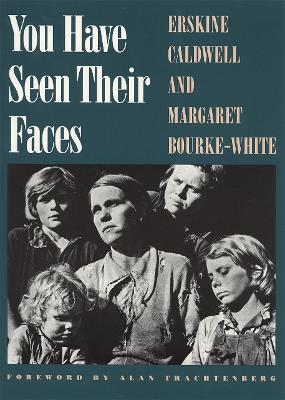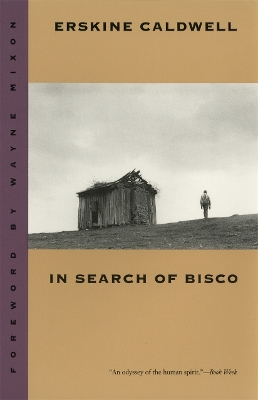Brown Thrasher Books
3 total works
In the middle years of the Great Depression, Erskine Caldwell and photographer Margaret Bourke-White spent eighteen months traveling across the back roads of the Deep South—from South Carolina to Arkansas—to document the living conditions of the sharecropper. Their collaboration resulted in You Have Seen Their Faces, a graphic portrayal of America's desperately poor rural underclass. First published in 1937, it is a classic comparable to Jacob Riis's How the Other Half Lives, and James Agee and Walker Evans's Let Us Now Praise Famous Men, which it preceded by more than three years.
Caldwell lets the poor speak for themselves. Supported by his commentary, they tell how the tenant system exploited whites and blacks alike and fostered animosity between them. Bourke-White, who sometimes waited hours for the right moment, captures her subjects in the shacks where they lived, the depleted fields where they plowed, and the churches where they worshipped.
In 1965, more than five decades after his forced estrangement from his black boyhood friend Bisco, Erskine Caldwell set out across the South to find him. On the journey, which took him from South Carolina to Arkansas, Caldwell spoke to many people on the pretense of asking Bisco's whereabouts: a black college professor in Atlanta, Georgia; a white real estate salesman in Demopolis, Alabama; a black sharecropper in the Yazoo Basin of the Mississippi Delta; a transplanted white New England housewife in Bastrop, Louisiana; and others. Eighteen of those conversations, with Caldwell's commentary, make up this book.
Caldwell made his journey at the zenith of the civil rights movement. Bisco, whom Caldwell never found, becomes a symbol for the South's race problem, to which he sought an answer in the emotions, experiences, and attitudes of those he encountered.


